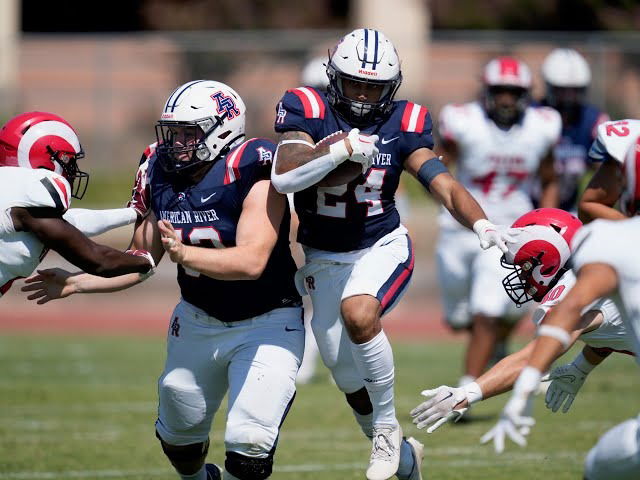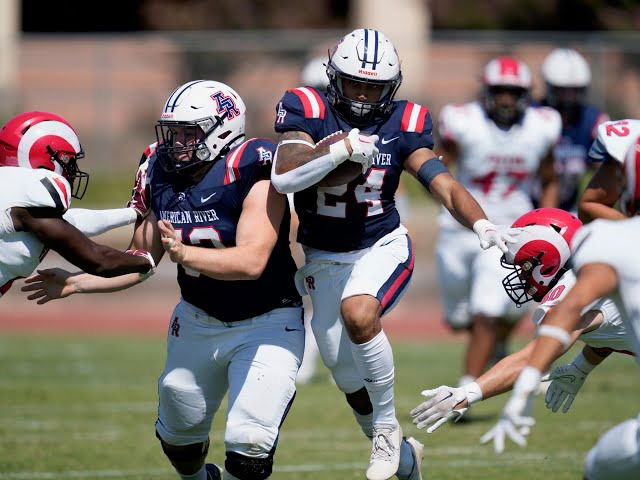



This should’ve never become a headline. But here we are, watching three young college football players ending their dreams before it even began—not because of injury, grades, or controversies, but because of administrative chaos. The culprit? A waiver rollout by the NCAA that’s been so sloppy and inconsistent, that it’s left players across the country hanging in eligibility limbo. The waiver was meant to offer relief to athletes. Instead, it feels like a riddle with career-altering consequences.
Watch What’s Trending Now!
In early March, the NCAA had released what many deemed a lifesaver. The JUCO eligibility waiver allowed players who “competed at a non-NCAA school for one or more years” remain eligible to compete in the 2025-26 academic year even if they used up their final season of competition during 2024-25. So, naturally, a horde of players set aside their NFL dreams and stayed back in hopes of competing in the upcoming season. The Combine went by, the Pro Day went by, even the Draft wrapped up in spectacular fashion. Several JUCO athletes watched in awe imagining how they’d prepare for the next draft process. Cut to exactly a month later, and the hope ceased to exist.
Specifically for three athletes, it was a final snap they’ll never get to take. First was Elon Phoenix defensive back Nathan Kibambe who didn’t mince his words in a letter addressed to the NCAA and President Charlie Baker. “The NCAA put out a waiver with vague guidelines and completely mishandled the situation. Terrible communication,” he wrote, before adding:
“I personally called the NCAA and was told, ‘We don’t know anything about that, talk to your compliance office.’ So I went to compliance… and they told me I’d be fine. They said I’d get another year because I played one or two years at JUCO and used up my eligibility in 2024—that I qualified for the blanket waiver. That gave me hope. So, like many others, I trusted the process—only to be told months later that I was ineligible.” For Kibambe, this wasn’t just about eligibility—it was about trust. “That’s not just confusing. That’s being misled by the very system we trusted…Because of the unclear NCAA waiver guidelines, I even lost scholarship opportunities that could have changed my life.”
“A lot of us entered the transfer portal thinking we were eligible. Some took official visits, committed to schools, signed NIL deals, and even went through spring football—only to be told months later, after the NFL Draft, Combine, and Pro Days, that we were ineligible. I even missed my Pro Day because the NCAA didn’t give clear answers to schools,” he further noted. Unfortunately, he wasn’t alone…
Wide receiver Ashtyn Hawkins, who transferred to Baylor this offseason went on Instagram Live stunned and raw. Not long after, a formal statement from Baylor echoed the shock. Same was the story for Utah State RB Rahsul Faison, who transferred to the Gamecocks. Painfully, there was another harsh truth that came to the surface. “Yes, Diego Pavia and Jett Elad won their cases—but they had the money to fight,” Kibambe added. Translation: Access to justice in this sport too often depends on your bank account.
So, the Elon defensive back’s demand is simple and powerful: Fix the system. “Let us play. Let us finish what we started,” he pleaded. He wants the NCAA to “fix the blanket waiver so JUCO athletes whose eligibility ended after the 2024–2025 season can play this year—regardless of whether their five-year clock has expired due to circumstances that occurred before they ever enrolled at an NCAA institution.” It’s not about bending rules. It’s about applying them fairly, consistently, and with some shred of humanity.
“Giving JUCO players one more year of eligibility isn’t asking for unlimited eligibility. No one’s trying to play college ball until they’re 30.” These aren’t faceless names in a portal—they’re young men who followed the rules, trusted the process, and now find themselves punished for it. And for what?
To @NCAA @CharlieBakerMA and all decision-makers❗️❗️❗️
It’s May 26, 2025, and it’s honestly sad I even have to say this. I’m speaking on behalf of student-athletes across the country who feel forgotten and failed. Countless athletes are stuck in limbo because of a JUCO waiver… https://t.co/YKy6REN8Y9
— Nathan Kibambe 🇨🇩 (@nathan1kibambe) May 26, 2025
Trying to secure their future? Since when did that become illegal?
Let them play: The NCAA’s inconsistency isn’t sitting right
The case of Diego Pavia was supposed to crack open a door for players across the country. Now, Baylor is trying to keep that momentum going by fighting to get Ashtyn Hawkins back on the field. The university didn’t mince words in a statement shared via SicEm365: “We intend for Ashtyn to be part of our program this upcoming season and are actively working with the NCAA to explore all eligibility options. We will have no further comment on this matter at this time.”
Meanwhile, FCS standout Faison is transferring to South Carolina, but like many others, his eligibility case is still in limbo. He’s lawyered up, hoping the legal route gives him the shot he’s earned.
Here’s the kicker—NCAA Bylaw 12.8.1.6 states that exceptions to the five-year rule must be applied consistently to similarly situated athletes. And what about Kidambe? His case is just… hanging there. If Hawkins and Faison get cleared, Kidambe should too—along with everyone else left waiting after the NFL Draft, Pro Day, and Combine. Because no, a contract isn’t guaranteed—but the chance to chase that dream should be. Denying it? That’s not just unfair—it’s brutal.





